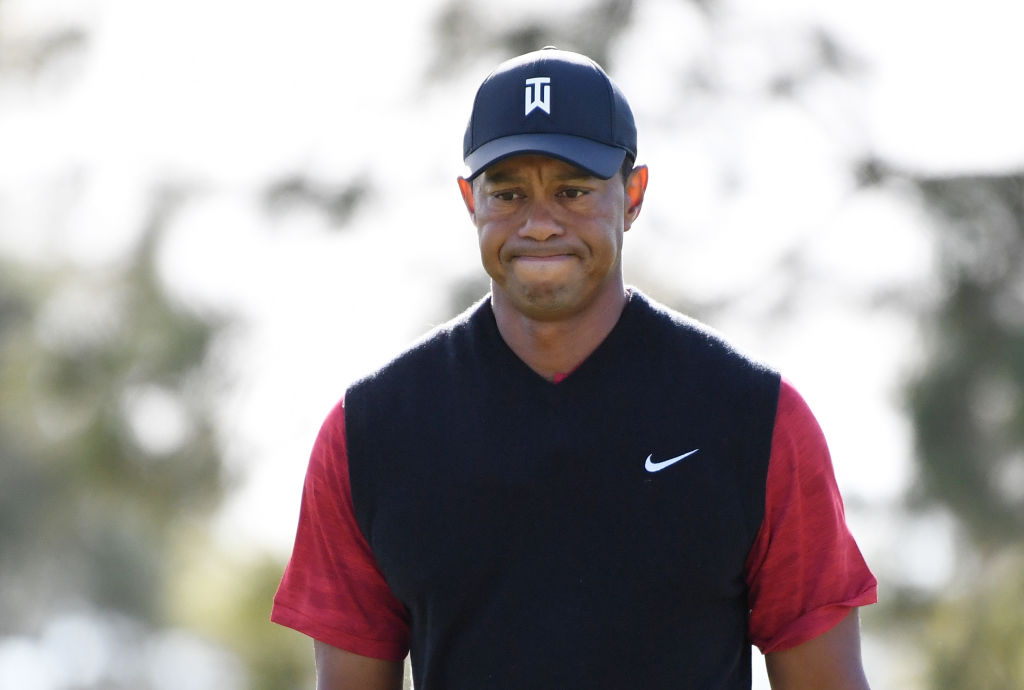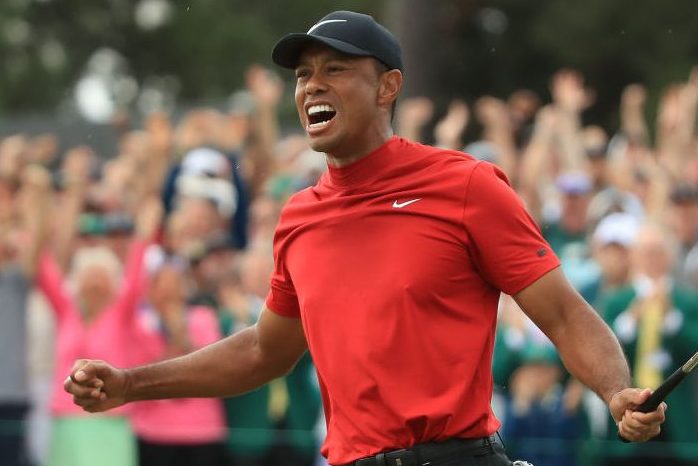On a Saturday in mid-April, Chris Davis stepped to the plate in Fenway Park and did something he’d been unable to do since the previous September: he got a hit.
With a single off Red Sox right-hander Rick Porcello in the first inning on April 13, Davis snapped his painful, record-setting hitless streak of 54 at-bats.
“Obviously I’ve been looking forward to it for a while,” Davis said afterward. “But there’s no way to really put into words kind of what I was feeling when I looked back at our bench and saw the guys going crazy.”
The day after that in Augusta, Georgia, another epic cold streak that spanned years instead of months was also busted in epic fashion.
Trailing entering play on Sunday, Tiger Woods played like it was the year 2000 and surged up the leaderboard, defeating runner-ups Dustin Johnson, Xander Schauffele and Brooks Koepka by a single stroke to win the Masters.
For Woods, it was his first win at a major since 2008, before marital infidelity, back surgeries and a litany of other off-course problems ravaged his life and nearly derailed the 43-year-old’s historic career.
Following the win, Woods sang a similar tune to Davis. “It’s unreal for me to experience this,’’ the golf legend said after his victory. “It was one of the hardest I’ve ever had to win just because of what’s transpired the last couple of years.”
Given the lengthy struggles both Woods and Davis experienced, it isn’t too surprising they had similar responses to the psychological relief of those struggles coming to an end.

“There’s just this increased pressure and rumination over time. They start to doubt themselves … Are they ever going to be able to break through? It’s been built up in their minds and then there’s also the external pressure as well,” Association for Applied Sport Psychology board member and certified mental performance consultant Graig M. Chow, Ph.D. tells InsideHook. “The natural reaction when they finally do break through is a sense of relief that it’s over with and now they can finally get back to performing how they are used to.”
According to Chow, if an athlete is able to learn from the experience of not only sliding into a slump but also busting out of it, a period of improved performance can follow a snapped cold streak.
“When I work with athletes I talk about the concept of relief because it can sometimes be a catalyst for re-strategizing or relearning what worked while overcoming the adversity. If you can work from that experience by learning how you were able to break through, then you can repeat that in future situations.”
So, from a psychological perspective, why do cold streaks start in the first place?
“It is almost impossible psychologically for any athlete to continuously sustain a high level of performance,” USC associate professor John Callaghan, an expert in sports psychology and the role of sports in society, tells InsideHook. “The pressures invariably take a toll and a performance drop-off occurs. The mind, as well as the body, needs relaxation and high-level sport today is ultra- demanding in every way. The demands and expectations are almost ridiculously high, and mental and physical lapses — and sometimes breakdowns — are certainly not unusual.”
Since there are so many variables, it can be tough to determine exactly how a streak of poor performance started and diagnose all the factors that led up to it.

“What we know from our research is that there are a lot of different mental factors that are linked to performance,” Chow says. “Those same mental factors are the ones that are linked to prolonged cold streaks over time. It’s different for different athletes, but the primary one is self-doubt. That’s typically the one that’s been shown to lead to prolonged cold streaks. The other one is concentration issues — not being able to focus on the present moment because of worrying too much about the past or future. Motivation is a third one. Athletes who are going out there trying to avoid making mistakes, that can lead to performance slumps. Personal issues can also play a role.”
Due to their extended nature, cold streaks can only reinforce themselves the longer they continue. Chow references psychologist Albert Bandura’s theory of self-efficacy when explaining why cold streaks can sometimes be self-fulfilling prophecies.
“It is kind of a confidence-performance spiral which can occur,” Chow says. “We know that one of the best predictors of confidence is an athlete’s previous performance. A bad at-bat or poor showing at the course can lead to confidence going down which then subsequently leads to the next performance being poor which then causes confidence to go down even more which then harms performance even more. It’s a cycle or a spiral that keeps on building upon itself.”
As a streak goes on, focusing too much on the outcome instead of the moment also becomes an issue that can perpetuate poor play. “Now you just want a hit. Now you just want to win,” Chow says. “That focus becomes too future-oriented. The thought process gets too far ahead and we know athletes perform best when they’re in the present moment.”
The best medicine — aside from receiving help from a mental health specialist like or a good old-fashioned dose of good luck — is having a set time for what Chow calls “post-event reflection.”
“After they’ve had a competition, it’s good for an athlete to go back in and reflect holistically about the things they did well and the things they could have done better,” Chow says. “The reason that’s helpful is, if we don’t have a pre-set time do this, we’re often going to be thinking about it for the rest of the day and even into the next day. What can happen is after an athlete starts to worry about their past performance that will carry over into their next one because they’ve spent so much time worrying about what didn’t go well. I think having that post-event reflection period really helps athletes process, learn and then move on. The more an athlete worries about what happened, the harder it is for them to focus on the task in front of them.”
Callaghan agrees success in sports is largely a mental game.
“After years of playing, watching, and coaching sports, I am convinced that the mind is the critical factor in elite performance,” Callaghan says. “If an athlete is not in the correct psychological state, it is well nigh impossible to play or perform to their maximum ability.”
The Charge will help you move better, think clearer and stay in the game longer. Subscribe to our wellness newsletter today.

























